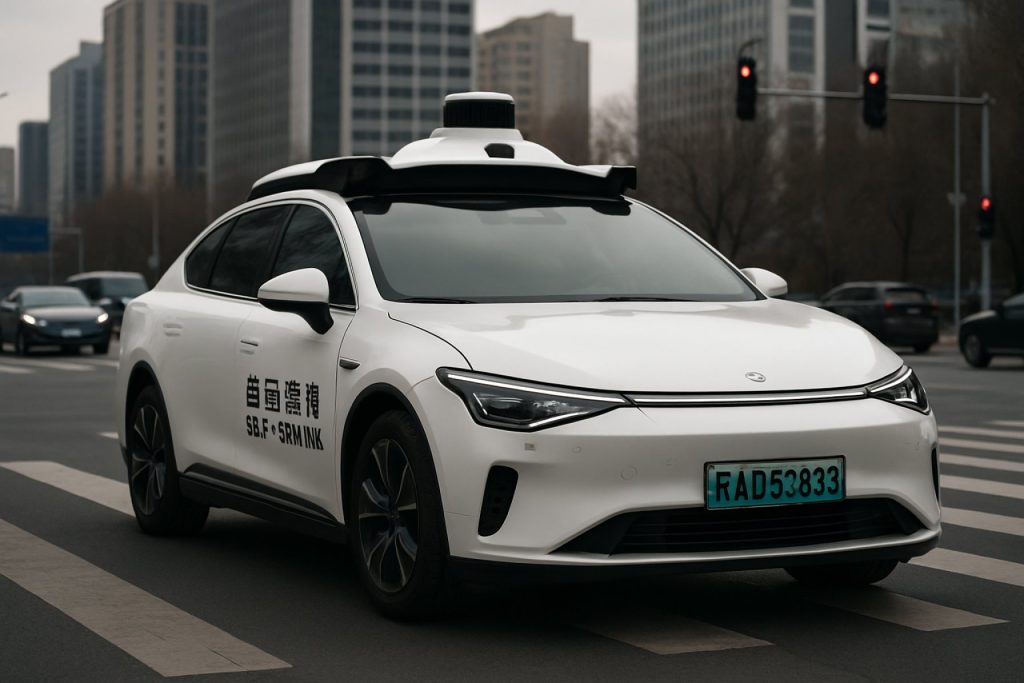
China Forces a Slowdown in Electric & Autonomous Car Race: What It Means For Drivers and Global Markets
China’s EV boom is facing new restrictions as officials warn automakers to ease self-driving advances and avoid a destabilizing price war.
- 50%: Estimated share of electric vehicles in China’s auto sales by 2025
- 30%: Growth in Chinese brands’ EV exports in the last 12 months
- 15%: Price drop on some 2025 BYD EVs, sparking a fierce price war
- 2025: Key year for China’s new electric and self-driving car safety standards
China’s streets buzz with the quiet hum of electric vehicles and brainy self-driving prototypes. But this showcase of cutting-edge innovation has hit a government-imposed speed bump.
As EV giants like BYD, NIO, and XPeng set global trends, Chinese officials now urge caution. Authorities are demanding automakers ease the breakneck rollout of autonomous driving features, citing urgent safety and liability concerns. Industry regulators stress that watchdogs must set clear rules before the market shifts into higher gear.
China’s market has become a global battleground for EV supremacy. In recent months, industry leader BYD’s aggressive price cuts ignited a fierce price war. The fallout risks turning innovation inward—a phenomenon known as “involution,” where too much competition stalls meaningful progress.
According to Financial Times, the Ministry of Industry and Information Technology is stepping in to prevent a race to the bottom. Meanwhile, Bloomberg highlights “involution”: a unique Chinese term meaning progress stifled by fierce internal rivalry.
Why Is China Telling Automakers to Slow Down?
China’s regulatory agencies are concerned that a free-for-all approach in self-driving technology and cutthroat pricing could become disastrous. With more cars featuring advanced autonomous capabilities, any system flaw could create safety risks on a massive scale.
Officials emphasize that new safety and liability frameworks must come before widespread autonomous driving launches. The goal: balance innovation with public trust.
What Does the EV Price War Mean for Drivers and the Economy?
BYD’s price slashing set off a domino effect, with rivals racing to match. While consumers benefit from cheaper vehicles, experts worry that excessive competition leads to unsustainable business models, squeezed profits, and lower incentives for research and reliability.
Analysts predict that if the trend continues, only a handful of top players may survive—potentially limiting future choices and technological breakthroughs.
How Will China’s 2025 Car Safety Standards Change the Market?
In 2025, China plans to roll out new, stricter safety regulations for electric and autonomous vehicles. These will define clear guidelines on accident liability, data privacy, and human-machine interaction. Automakers must invest more in R&D and quality control to comply, which could weed out underfunded competitors and promote safer, more reliable vehicles.
What are Global Implications?
China is both the world’s largest EV producer and a crucial exporter. As Beijing reins in local competition, foreign automakers and regulators from the European Union to USA are watching closely. China’s new standards are likely to set the tone for global EV safety benchmarks.
Bottom Line: The world’s biggest car market is slamming on the brakes, resetting the pace for a more stable, safe, and sustainable EV revolution.
Don’t Miss Out—Stay Ahead in the EV Shift!
- Follow regulatory updates from China’s industry ministry and automakers like BYD, NIO, and XPeng.
- Watch for 2025’s new safety standards and how they influence global carmakers.
- Monitor price trends and EV launches to find the best deals—but consider long-term quality.
- Bookmark authoritative news sources like Financial Times, Bloomberg, and Reuters for timely updates.



